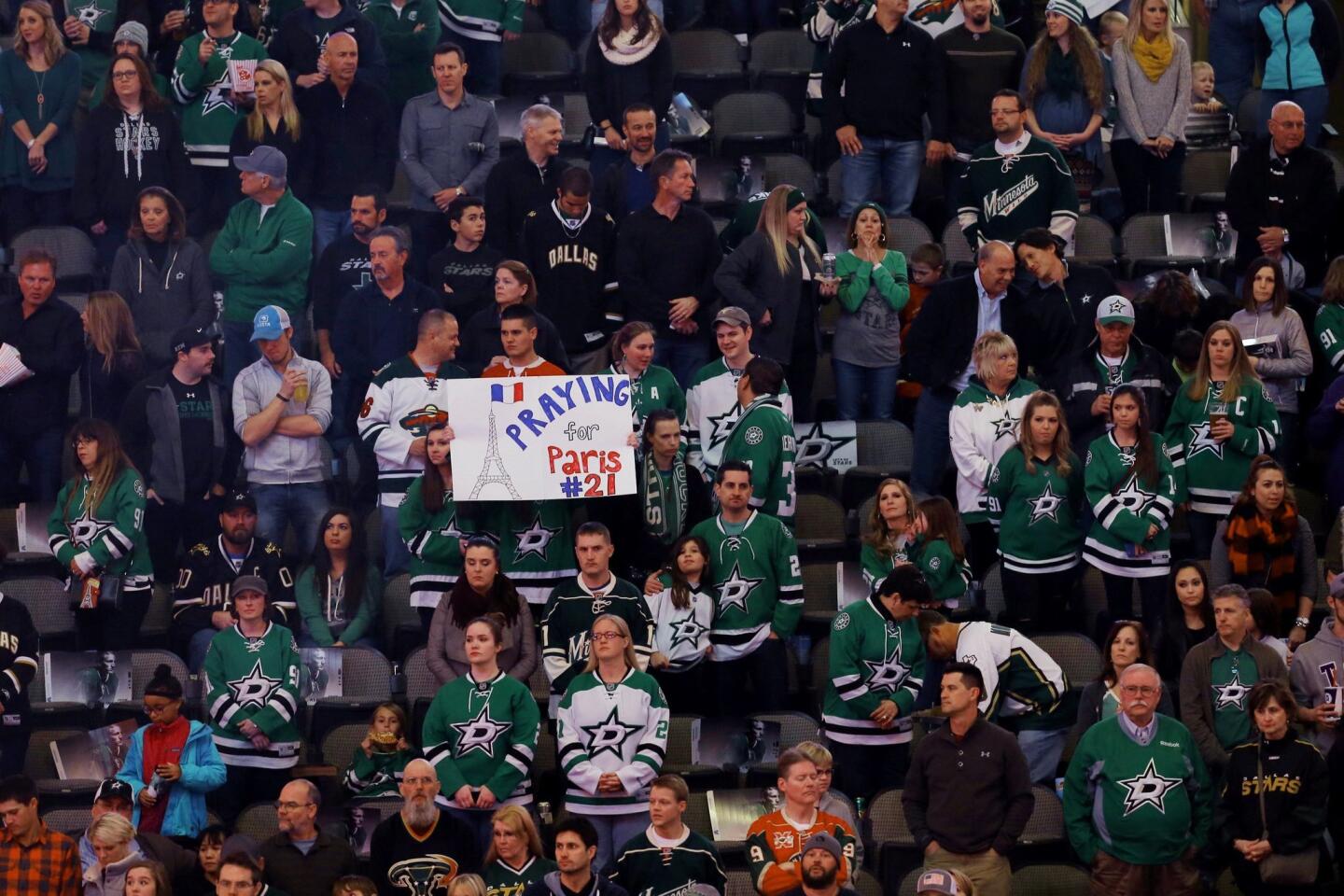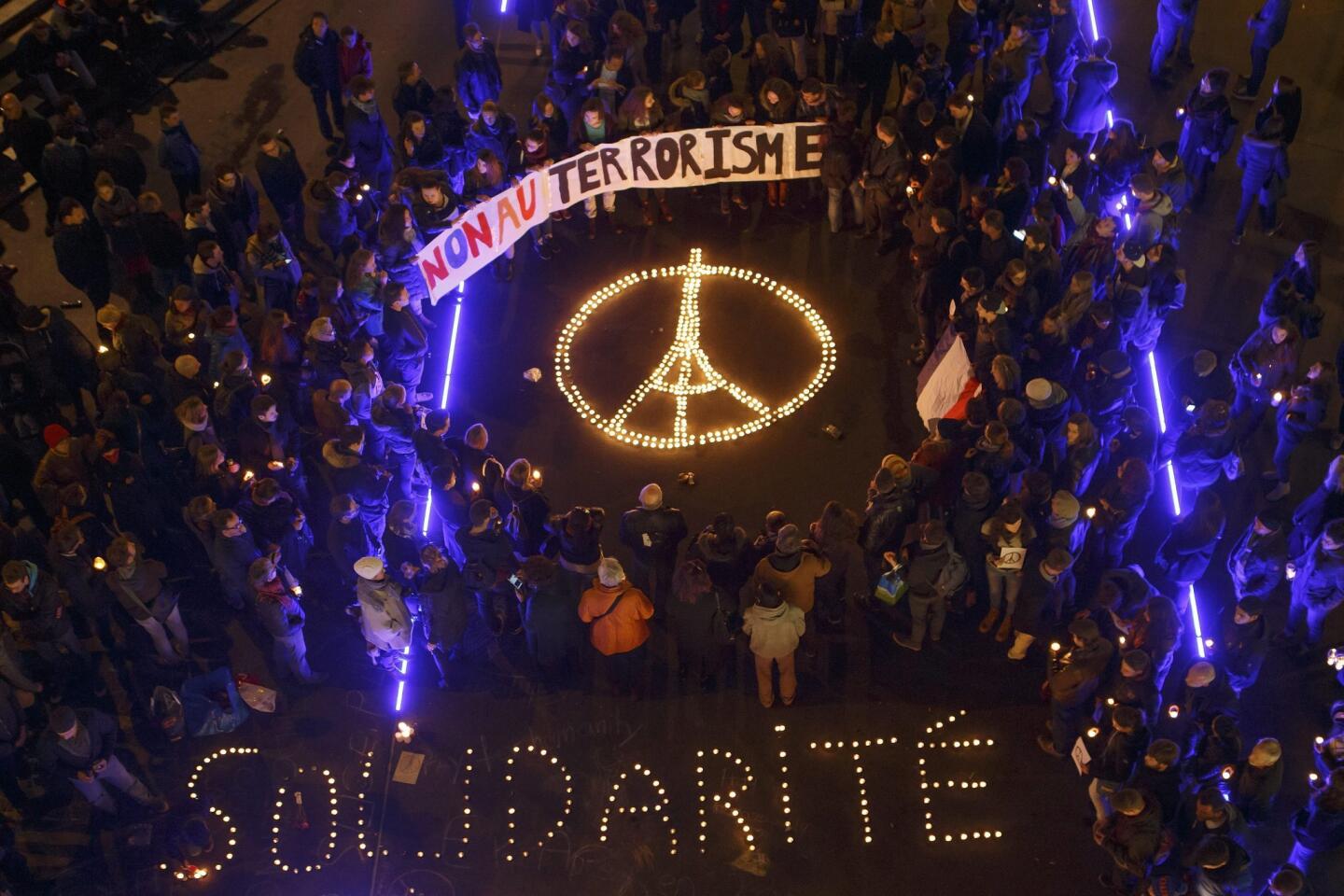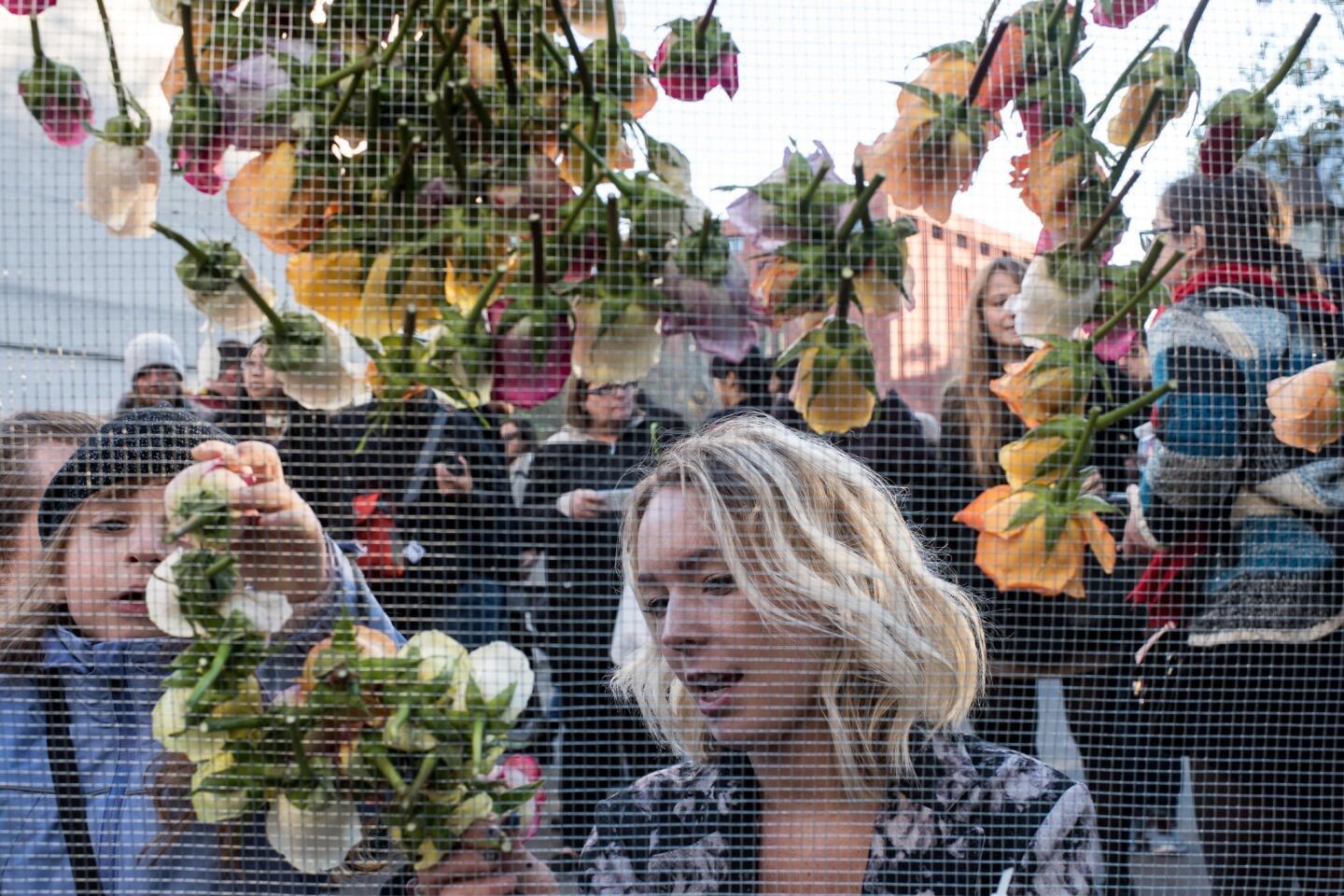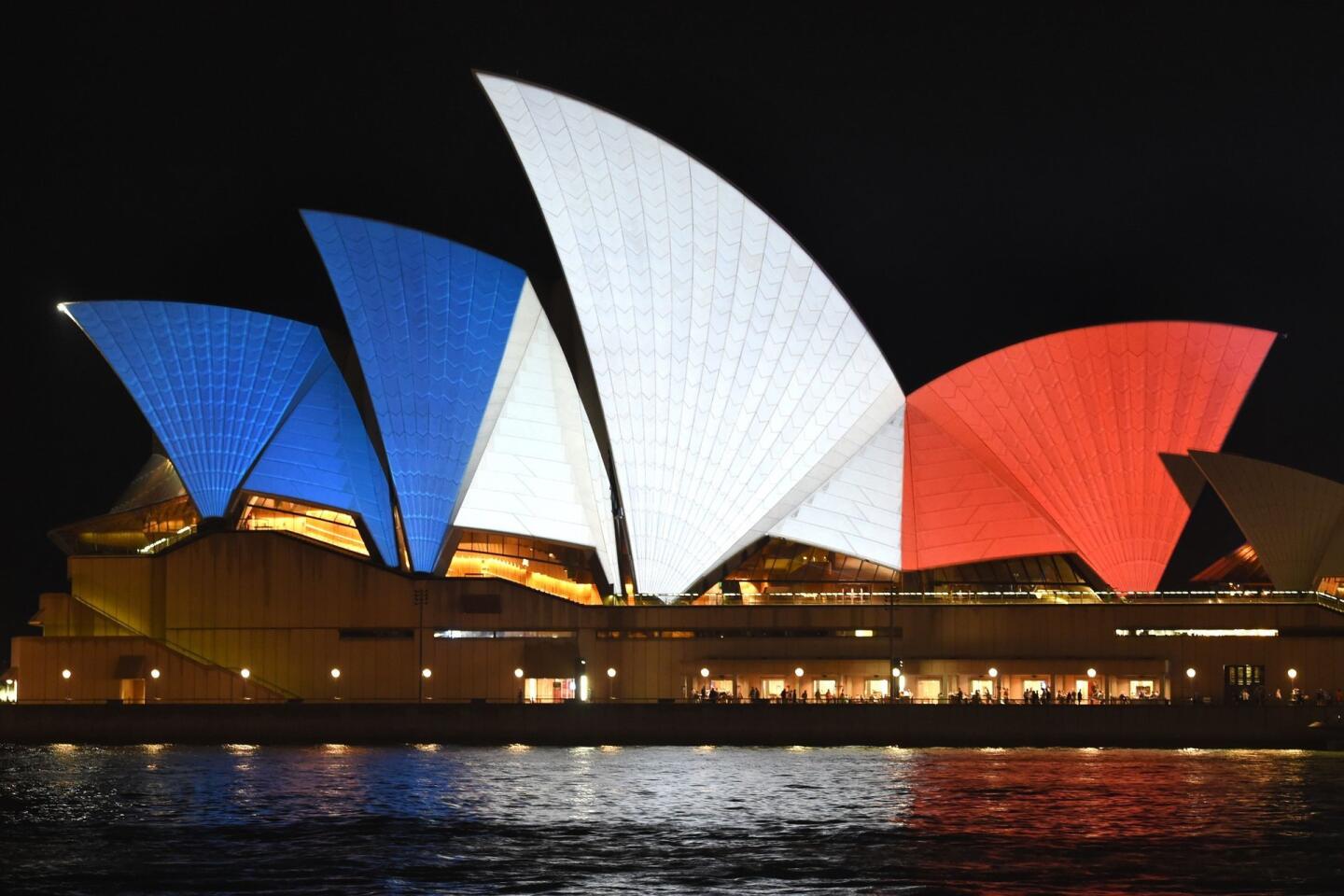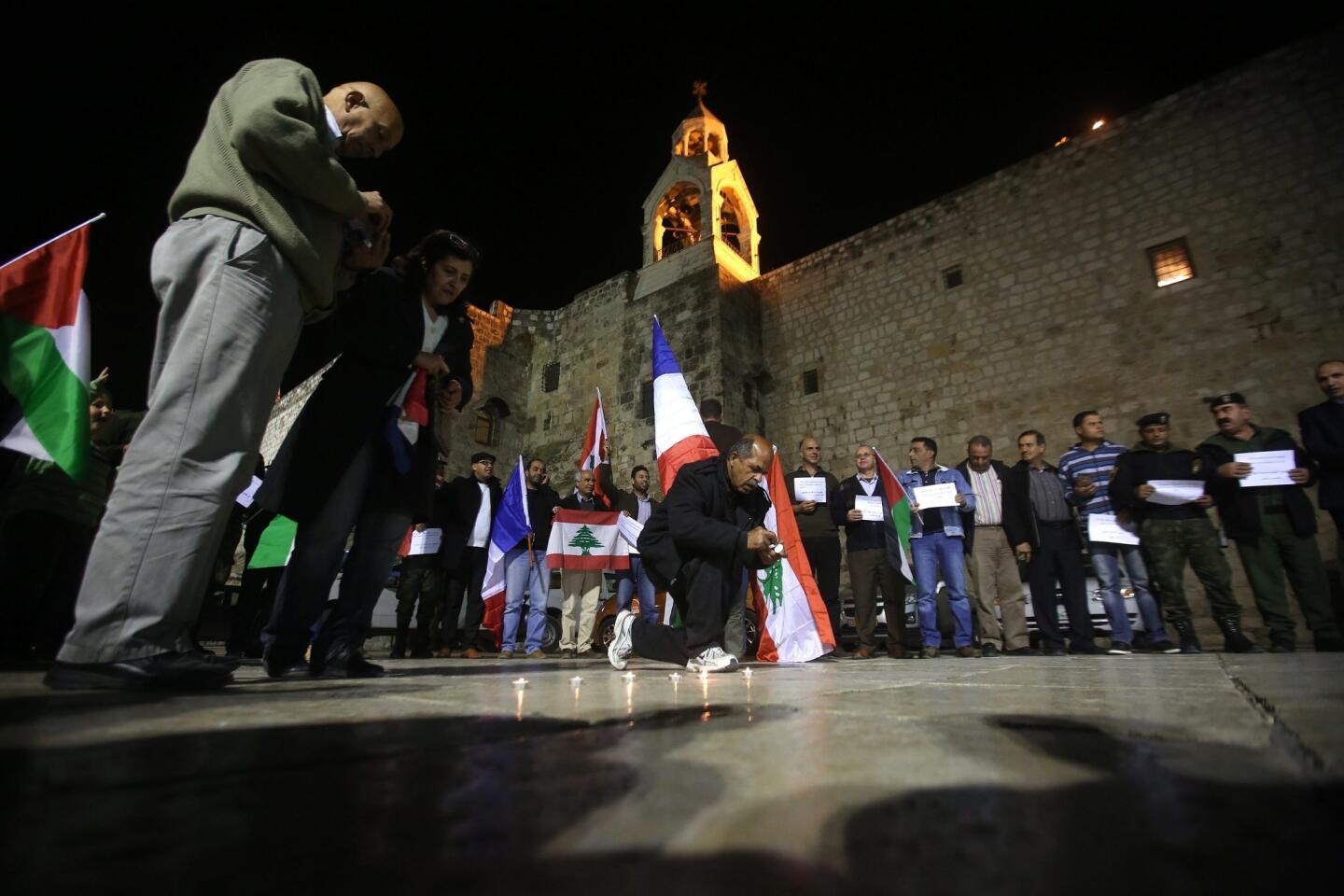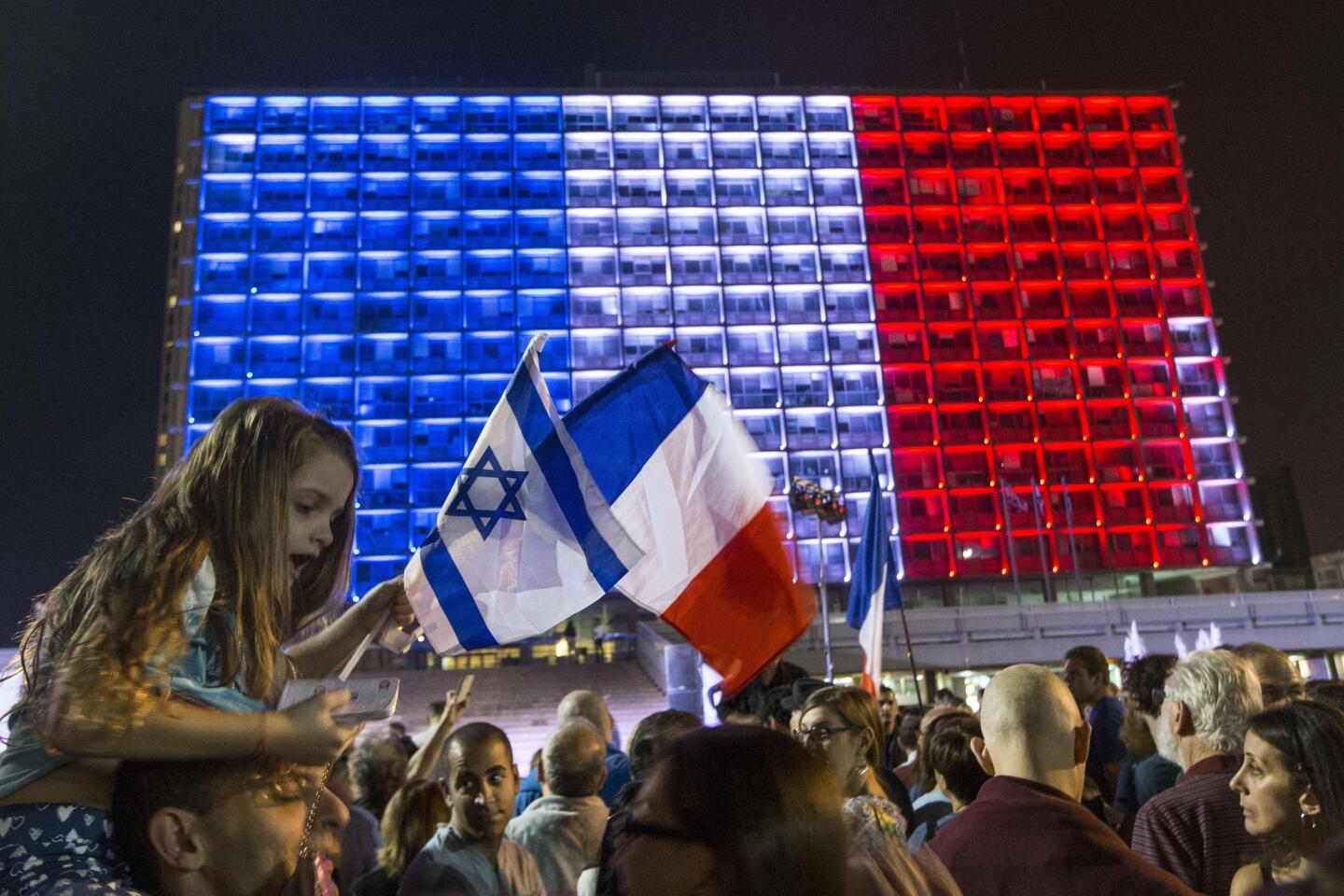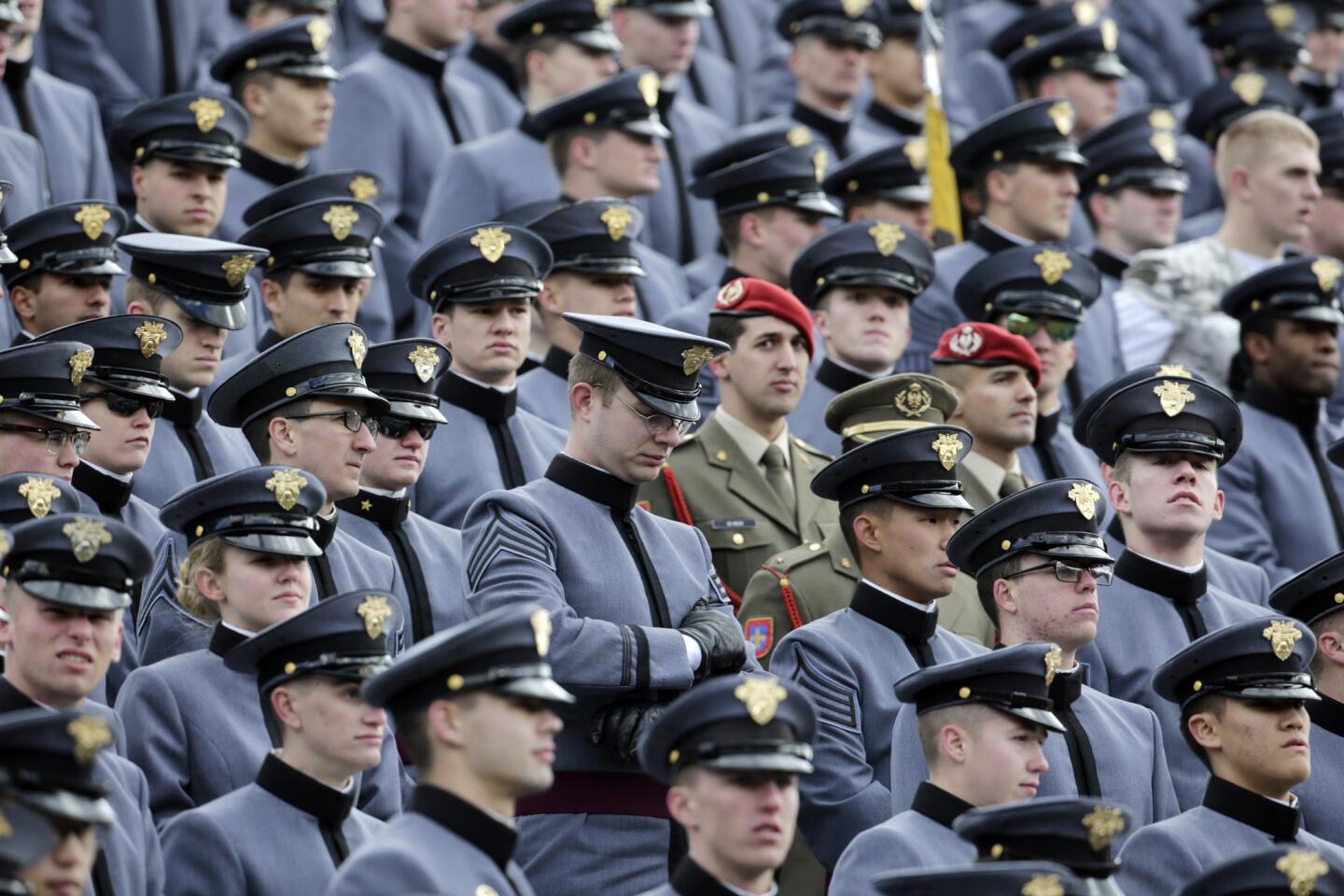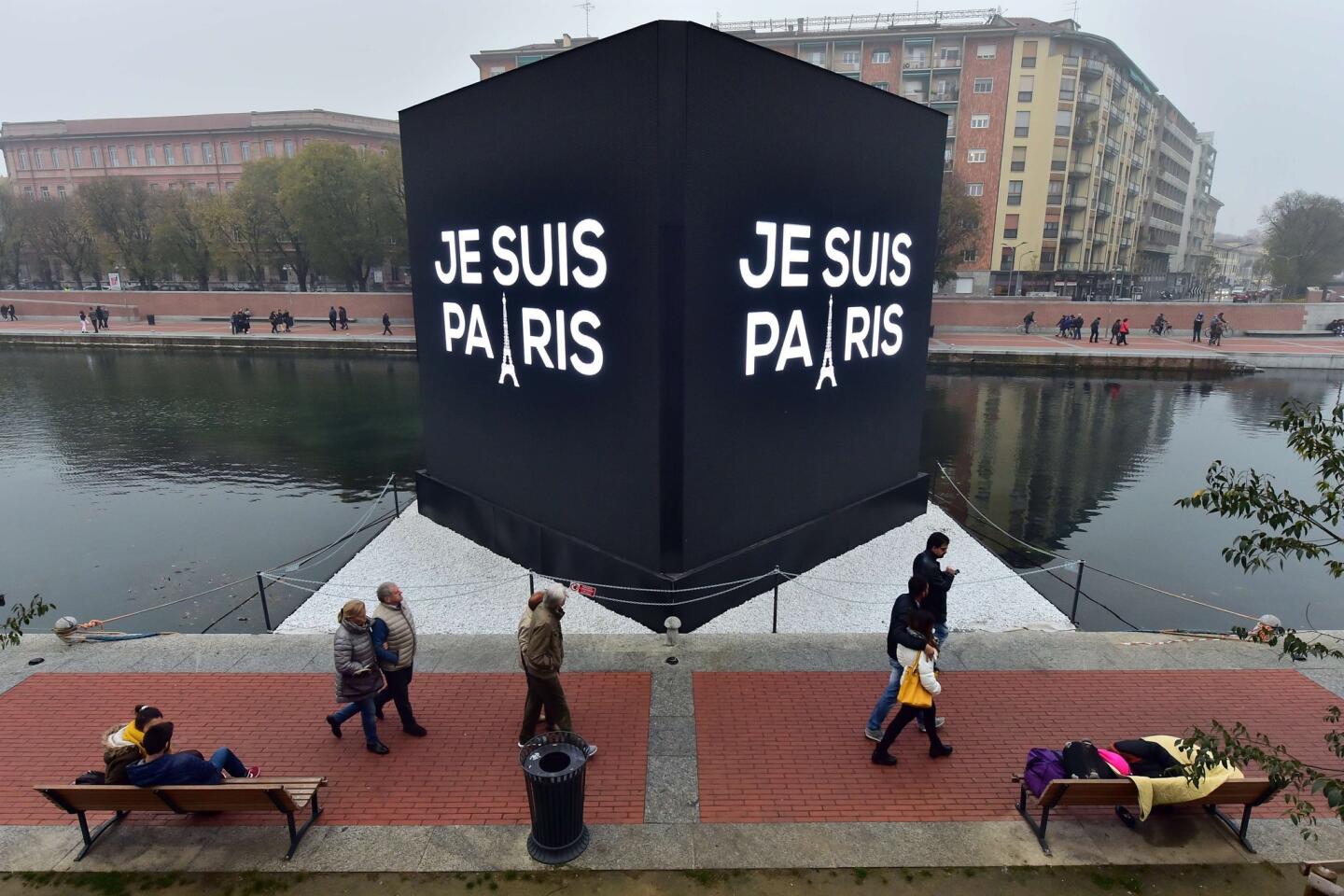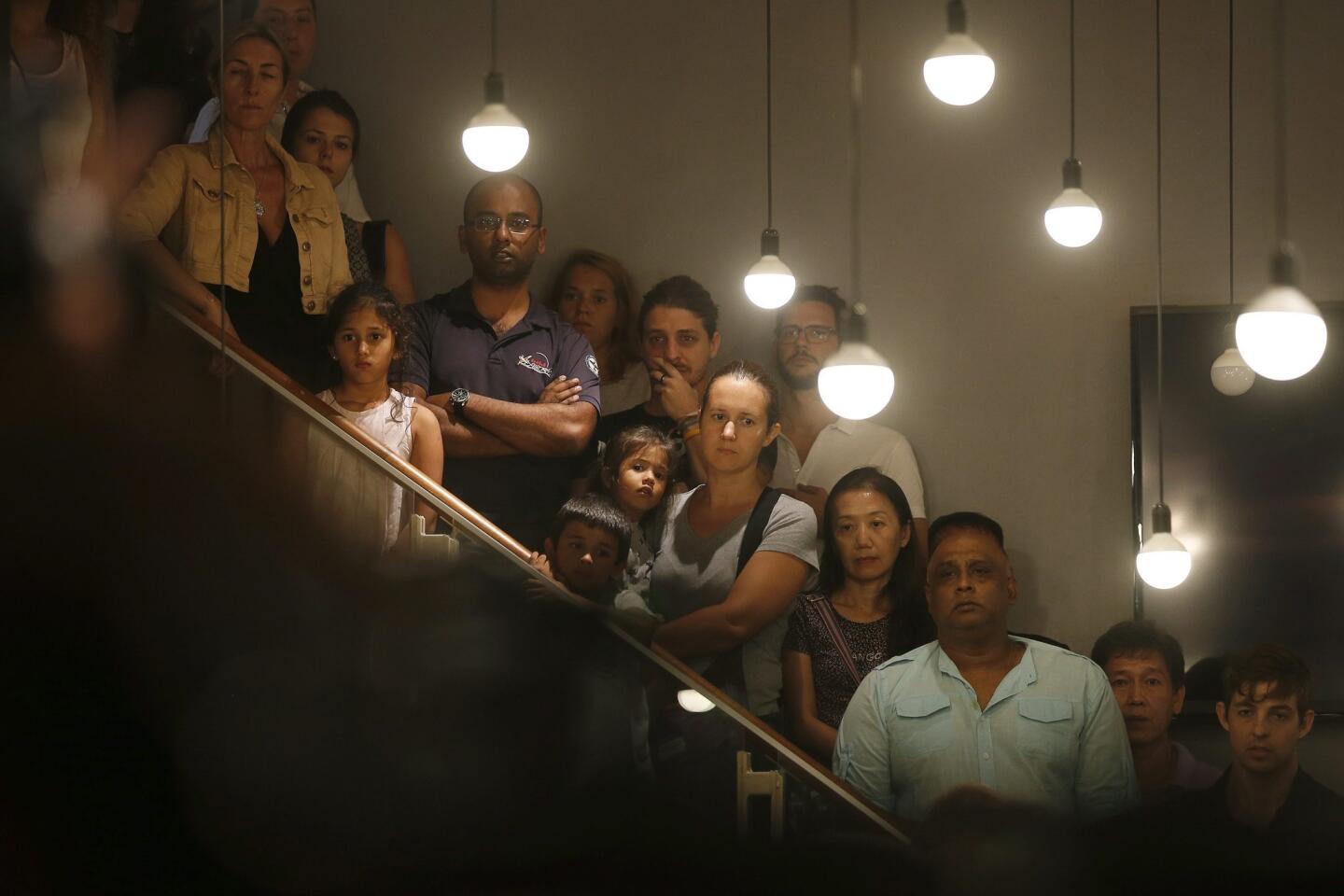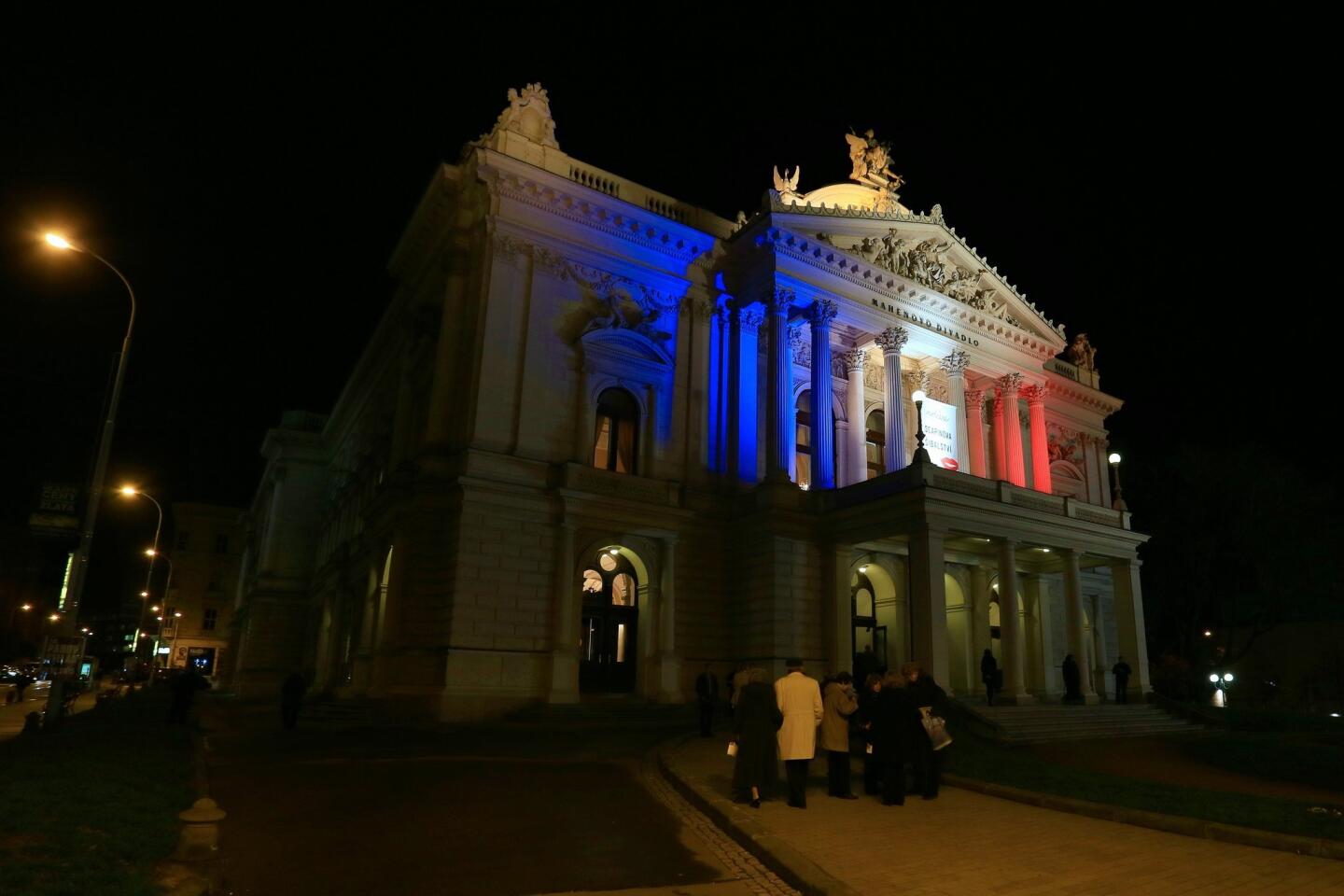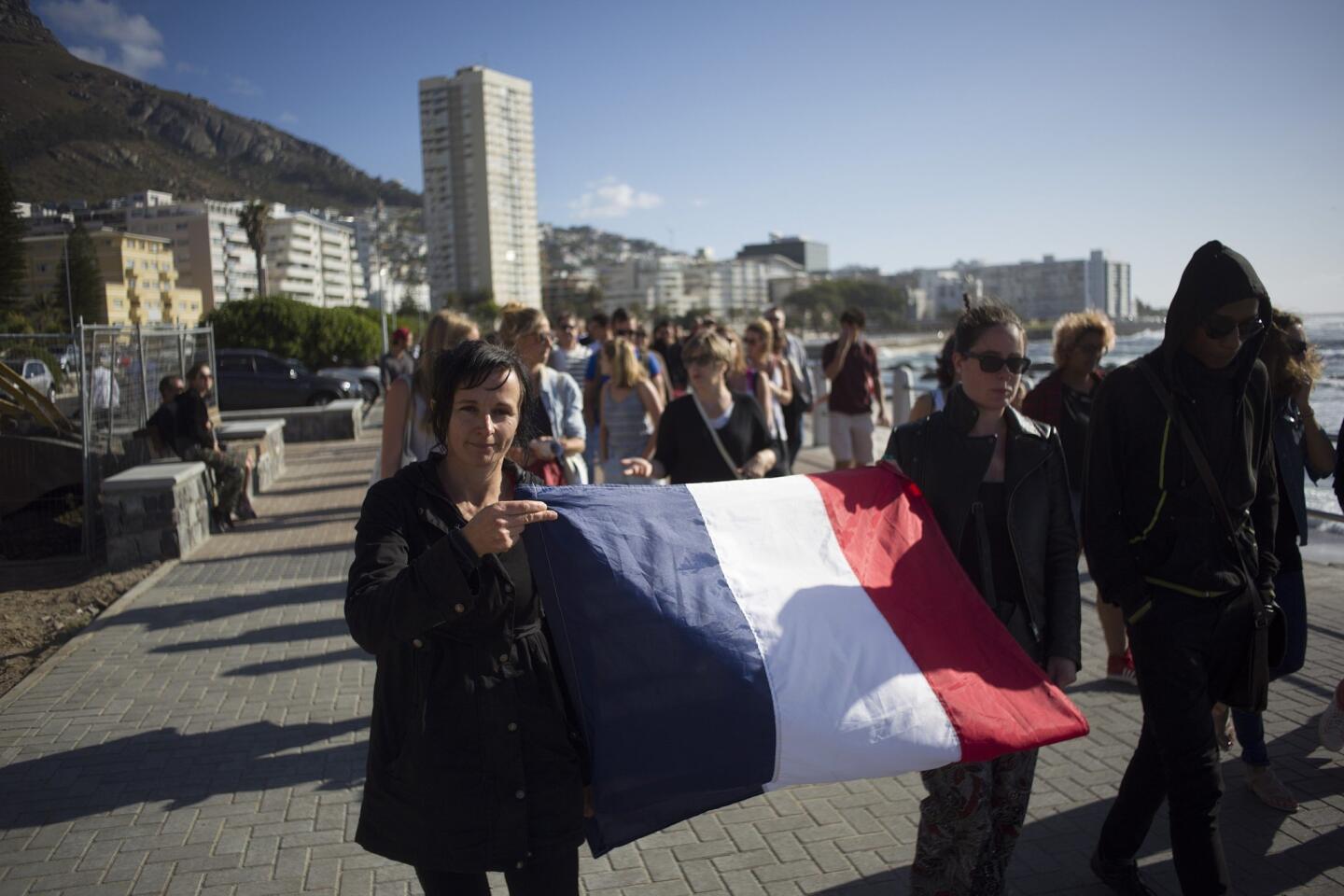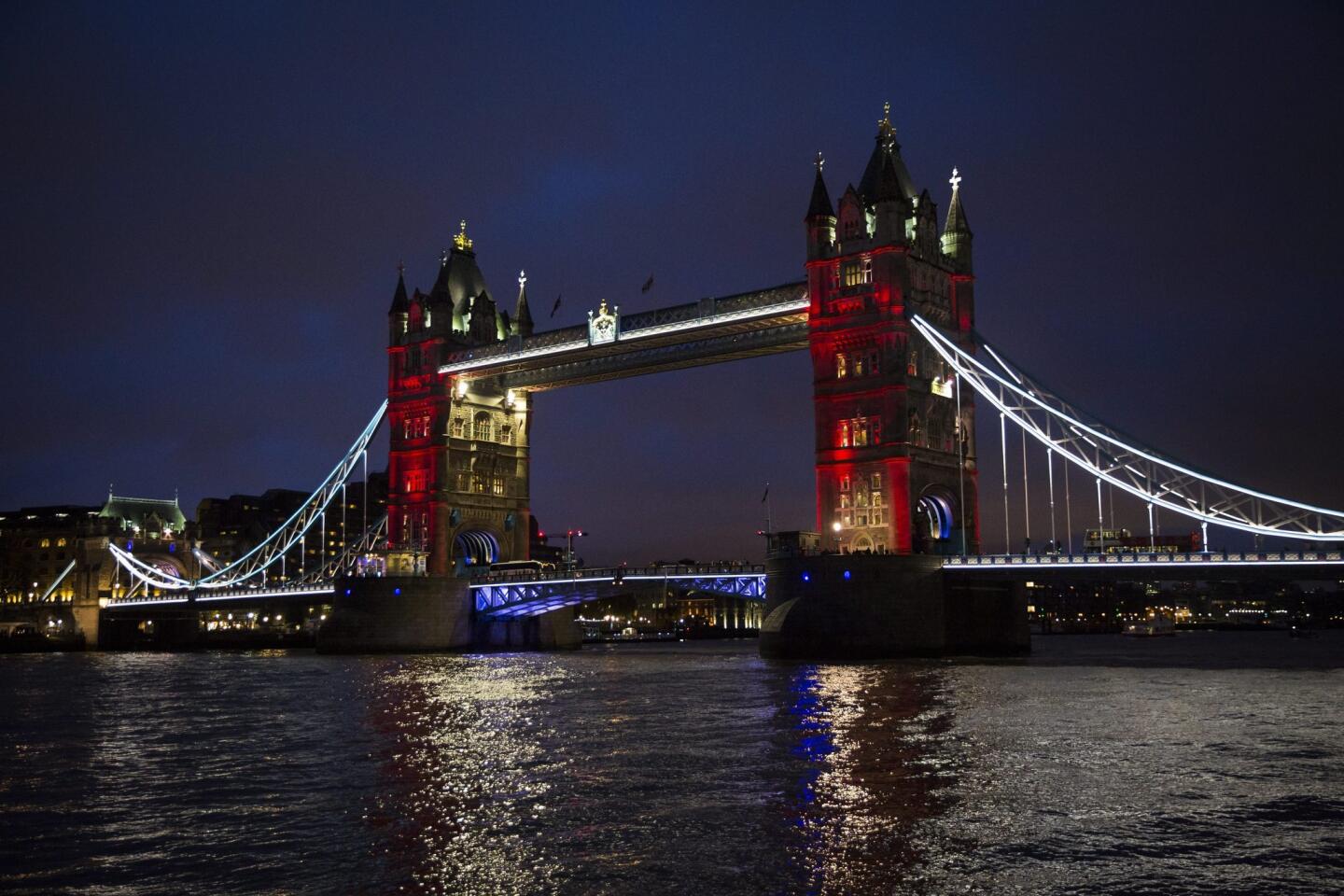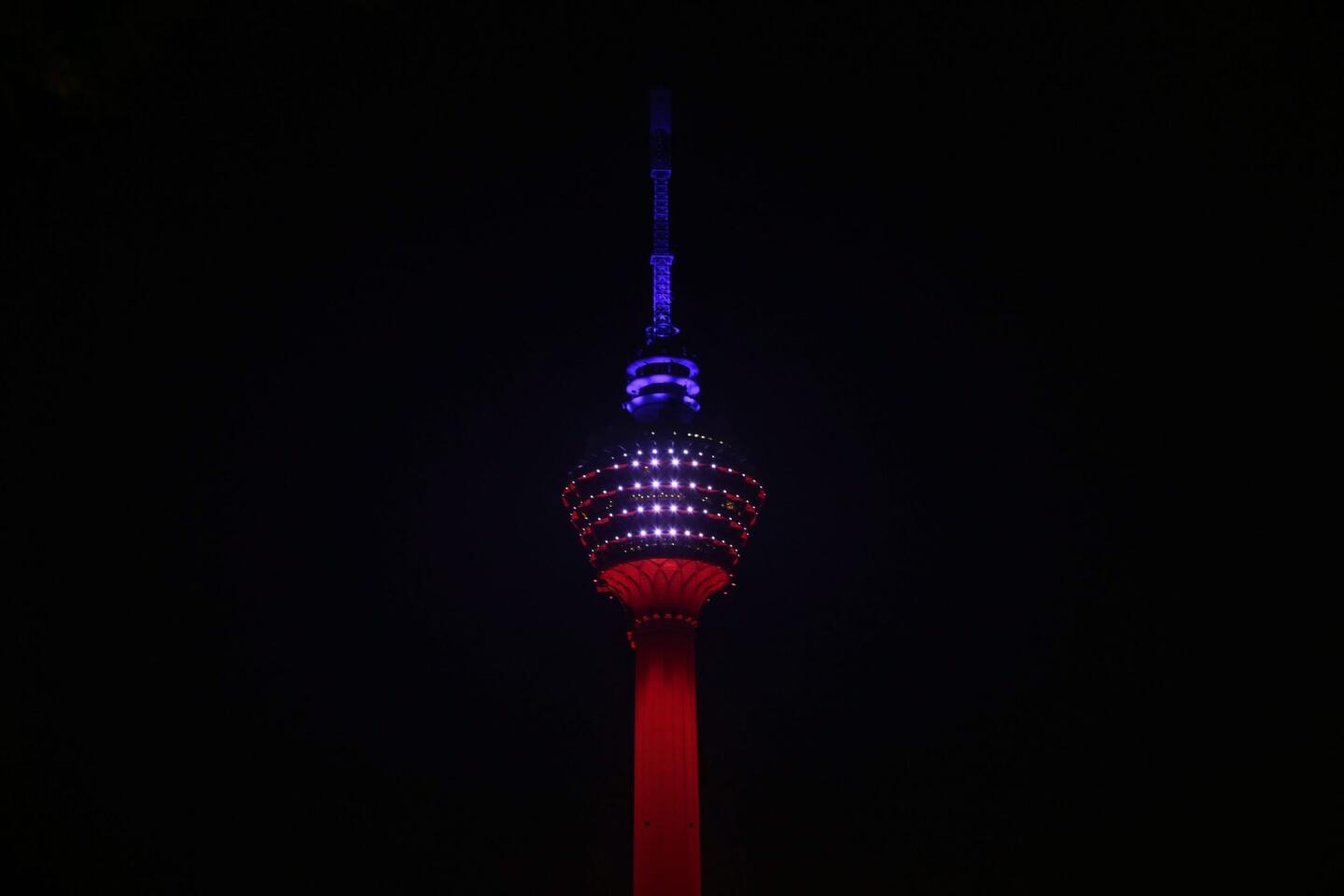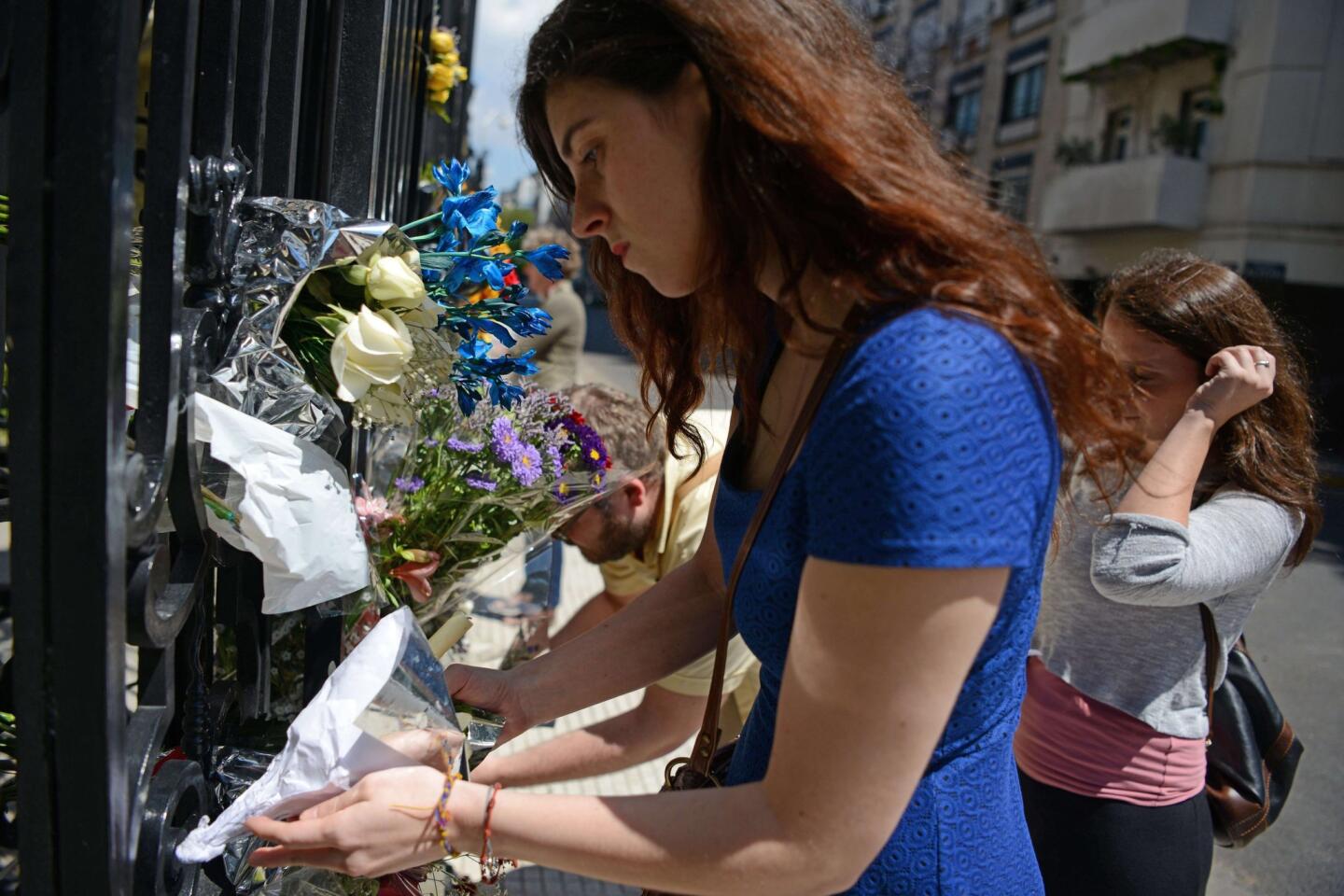Lessons from Hollywood on how life goes on after the Paris attacks
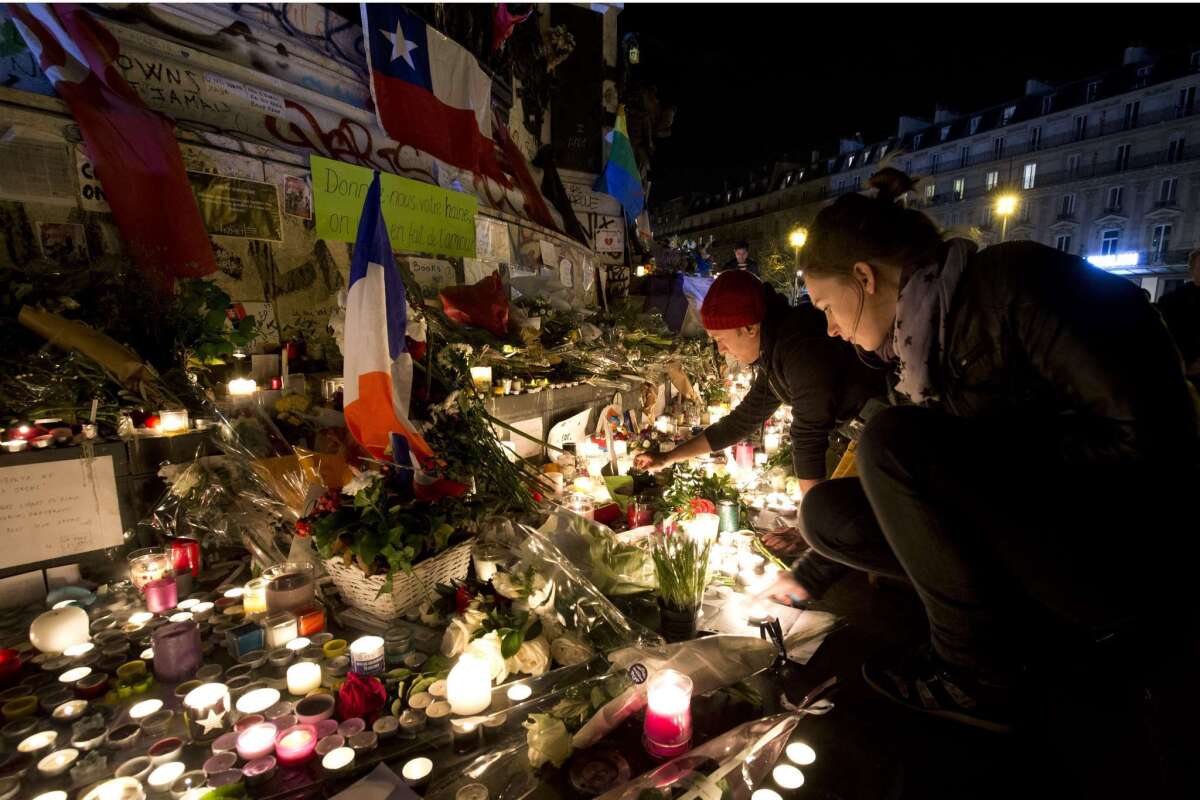
People light candles at a makeshift memorial in tribute to the victims of Parisâ attacksâ on November 15, 2015 at the place de la Republique in Paris.
Global tragedy strikes these days with a kind of wearying familiarity. The pain is fresh but our thoughts--as they did after Madridâ, London, Mumbai and elsewhere--return to a well-known place.
As the Paris attacks and their aftermath have played out this weekend, once again we stare dazed at the cable-news screen, facing questions we nevâer imagined--questions we suspect have no answers, even as the scouring of CNN for motives and details and revelations provides a comforting illusion otherwise.
NEWSLETTER: Get the dayâs top headlines >>
And once again, those of us immersed in entertainment--as producers, as distributors, as chroniclers, or even just as devotees--are left to ask where it fits in. Cultures have been grappling for centuries with how much space to allow levity in the place of a tragedy. But the relevance, and even the defensibility, of entertainment has lately been thrust forward as never before. These are new and confusing times, an age when mass civilian murders are common and our individual responses to them, thanks to social media, widely known. The proper reaction remains unclear; the rules of collective grief are still unwritten.
Was going to the movies, for instance, acceptable this weekend? Was it OK to Tweet about a television series or college football game? Was there a palatable way to return to, or justification for embracing, the shows, sports, movies, music and other pursuits that fill our typical weekends?
Was doing some of these things perhaps even an act of noble defiance--the attacks, after all, had taken place in part at a musical performance and seemed intent at striking at the freedom to enjoy life in such a manner--or an act of unsavory and even heartless self-distraction?
Wouldâ it be OK to wait 24 hours and then resume such activities? What about 48? Was the very idea of a statute of limitations untoward?
Entertainment entities faced their own dilemmas. Lionsgate weighed how to proceed with a Los Angeles premiere for its new âHunger Gamesâ movie on Monday, ultimately deciding to hold the event without a traditional red carpet. âSaturday Night Liveâ also scaled down but didnât step out: it scrapped its usual comedic opening this weekend in favor of a touching salutation, in English and French, from cast member Cecily Strong. Then it carried on with the show.
Whether performing on a stage or watching from the audience, most of us felt a strong ambivalence about any entertainment activity. One of the best articulations of the theme came from Madonna, of all people, who told a concert audience in Sweden that âI feel torn. Like why am I up here dancing and having fun when people are crying over the loss of their loved ones?â
A friend at a Hollywood publication said he was in a quandary over whether to overhaul an upcoming issue to focus on the attack. On the one hand, Paris was all we were thinking about, and it would be insensitive, even inaccurate, to carry on with the coverage of ratings and box office and first-look deals as if we werenât. On the other hand, the Paris attacks were not fundamentally an entertainment story, and wouldnât it be tone-deaf to pretend that they were?
And yet through it all entertainment may have already been playing a role in our processing mechanism. In movie theaters these past few months, films have, in their own oblique way that seem clearer after Friday, already been speaking to the issues underlying the attack, to the perpetrators and the victims, to the dangers posed and the values threatened.
The season has brought the wire-walking story âThe Walkâ and its spirit of unbridled humanity, whose main character uses ingenuity and showmanship to enhance lives instead of diminishing them, a fitting antidote to what happened in Paris. That said character was French, and was walking between towers that themselves would become a target and symbol, only underlines the comparison.
There is the new release âSpotlight,â an abuse drama in which truth-seeking journalists push forward and try to do what we all hope to do in the face of cataclysm: find justice, and maybe a little comfort for the afflicted, even as they are tempered by the knowledge their actions will always be insufficient. They press on while Sept. 11 strikes right in the middle of their efforts.
There has been âThe Martian,â which in its own Hollywood escapist way has showed the power of countries and people around the world to band together when human life is at stake, differences of nationality and ideology suddenly irrelevant.
There are, of course, literal attempts in Hollywood at understanding militant attacks, as with the upcoming â13 Hoursâ and âPatriots Day,â each about those trying to prevent the murder of innocents. But comprehension also comes more subtly, as with the current âSpectre,â in which disparate acts of mass murder are chillingly realized to be emanating from a common source.
The movie seeks to fathom what could drive such bloodthirsty nihilism (while also depicting the struggles of democratic governments to contend with it). Like many other examples, âSpectreâ is part of a feedback loop that circles between our brains and our screen, fears of an attack making their way from the first to the second, then coming back to us in a different form once such violence takes place in real life.
The question after attacks like Fridayâs is whether to allow entertainment back in. But perhaps that elides the real issue. Perhaps entertainment has been here all along.
When it comes to a post-tragedy pop culture, there are the easy calls to make--the French distributor that decided to pull an upcoming movie in which Paris was under attack, e.g. Most choices are harder. There are no answers--certainly no one-size-fits-all answers--on how entertainment can fit in during these shocking after-hours. Personal choices remain that way.
But whatever the response, there may be some comfort in not seeing these activities as separate. Asking the too-soon question may be, in a sense, asking the wrong question. Maybe entertainment shouldnât be treated as a distinct refuge to which we tentatively crawl back when it is safe to do so and after we sheepishly check to make sure no one is looking. Maybe itâs something that can and should be part of the understanding of the attacks in the first place.
In its purest form, entertainment is built into the process--part of a post-attack rebuttal that allows us to stand up for a life of choice and freedom, sure, but also a way weâve been understanding the tragedy all along, comprehending those who plot to kill, and the humanity they would seek to destroy.
Follow me on Twitter @ZeitchikLAT
MORE ON THE PARIS ATTACKS
In debate after Paris attack, Hillary Clinton finds foreign policy a strength
President Obama faces difficult choices in response to Paris terror attacks
The Eagles of Death Metal crew member died âdoing the job he lovedâ
More to Read
Only good movies
Get the Indie Focus newsletter, Mark Olsen's weekly guide to the world of cinema.
You may occasionally receive promotional content from the Los Angeles Times.

